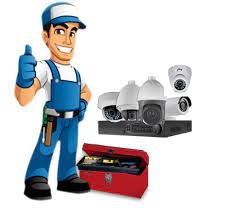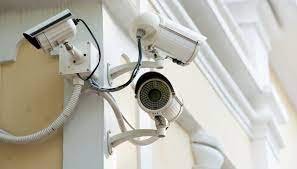
In an age where security concerns are paramount, the demand for closed-circuit television (CCTV) systems has soared. Whether it’s safeguarding homes, businesses, or public spaces, CCTV technology plays a crucial role in deterring crime and providing invaluable evidence in the event of incidents. However, the effectiveness of these systems depends heavily on the expertise of CCTV installation technicians. These professionals are the backbone of modern surveillance infrastructure, ensuring that cameras are strategically placed, properly configured, and seamlessly integrated into broader security networks. In this article, we delve into the pivotal role of CCTV installation technicians, exploring their responsibilities, skills, and the evolving landscape of surveillance technology.
Understanding the Role:
CCTV installation technicians are responsible for the deployment, configuration, and maintenance of surveillance camera systems. Their duties encompass a wide range of tasks, including site surveys, cable routing, camera mounting, software setup, and troubleshooting. Before installation begins, technicians conduct thorough assessments of the property or premises to identify vulnerable areas and determine optimal camera placement for maximum coverage and effectiveness.
Once the installation process commences, technicians meticulously install cameras, ensuring they are securely mounted and aligned to capture the desired field of view. They also run cables, connect equipment, and configure settings to integrate the cameras into the broader surveillance network. Additionally, technicians collaborate with clients to customize system preferences, such as motion detection sensitivity, recording schedules, and remote access capabilities, tailored to specific security needs.
Beyond installation, technicians provide ongoing maintenance and support to ensure the continuous operation of CCTV systems. This includes conducting routine inspections, performing software updates, troubleshooting technical issues, and responding promptly to any malfunctions or alarms. Their proactive approach helps preempt potential problems and ensures that surveillance systems remain reliable and effective over time.
Essential Skills and Qualifications:
Becoming a proficient CCTV installation technician requires a combination of technical expertise, problem-solving skills, and attention to detail. While formal education in electronics or telecommunications can provide a solid foundation, many technicians acquire specialized training through vocational programs, certification courses, or on-the-job experience.
Key skills and qualifications for CCTV installation technicians include:
- Technical Proficiency: A deep understanding of CCTV technology, including camera types, network protocols, video compression methods, and hardware components, is essential. Technicians must be adept at configuring cameras, DVRs (Digital Video Recorders), NVRs (Network Video Recorders), and other related equipment.
- Electrical Knowledge: Since CCTV systems involve electrical wiring and power supply connections, technicians should possess basic electrical knowledge to ensure safe and compliant installations.
- Problem-Solving Abilities: CCTV installation often presents unforeseen challenges, such as cable obstructions, signal interference, or compatibility issues. Technicians must demonstrate strong problem-solving skills to troubleshoot and resolve such issues effectively.
- Attention to Detail: Precision is paramount in CCTV installation, as even minor misalignments or configuration errors can compromise system performance. Technicians must pay meticulous attention to detail when positioning cameras, routing cables, and adjusting settings.
- Communication Skills: Effective communication with clients, colleagues, and stakeholders is crucial for understanding requirements, conveying technical information, and providing excellent customer service throughout the installation process.
- Adaptability: Given the rapid evolution of surveillance technology, CCTV installation technicians must stay abreast of industry trends, new products, and emerging techniques to adapt to changing demands and maintain their expertise.
The Evolving Landscape of Surveillance Technology:
The field of surveillance technology is constantly evolving, driven by advancements in hardware, software, and connectivity. As a result, CCTV installation technicians must continually upgrade their skills and knowledge to remain competitive and meet the demands of the market.
Recent developments in surveillance technology include:
- High-Definition (HD) and Ultra-HD Cameras: The transition from analog to digital cameras has led to significant improvements in image quality and clarity. HD and Ultra-HD cameras capture sharper footage with greater detail, enhancing the effectiveness of surveillance systems for identification and evidence purposes.
- IP-Based Systems: Traditional analog CCTV systems are increasingly being replaced by IP-based solutions, which offer higher resolution, greater flexibility, and advanced features such as remote access and analytics. IP cameras transmit video data over computer networks, enabling seamless integration with other security systems and applications.
- Artificial Intelligence (AI) and Video Analytics: AI-powered video analytics have revolutionized CCTV surveillance by enabling automated detection and analysis of security threats, suspicious behaviors, and anomalous activities. These systems can detect motion, recognize faces, track objects, and generate real-time alerts, enhancing situational awareness and response capabilities.
- Cloud Storage and Remote Monitoring: Cloud-based storage solutions have emerged as a convenient and scalable alternative to traditional DVR/NVR recording methods. Cloud storage offers remote access to video footage from any internet-connected device, simplifying data management, and facilitating off-site monitoring and backup.
- Integration with IoT Devices: The integration of CCTV systems with Internet of Things (IoT) devices, such as smart sensors, access control systems, and alarms, enables seamless automation and interoperability across security infrastructure. This interconnected ecosystem enhances overall security posture and enables more efficient incident response.

As surveillance technology continues to advance, the role of CCTV installation technicians will become even more critical in implementing and optimizing these sophisticated systems. By staying updated on emerging trends and acquiring the necessary skills, technicians can capitalize on opportunities in this dynamic and rapidly growing industry.
Conclusion:
CCTV installation technicians play a vital role in the deployment, maintenance, and optimization of surveillance systems, safeguarding properties, assets, and communities against security threats. Their technical expertise, problem-solving abilities, and attention to detail are essential for ensuring the effectiveness and reliability of CCTV infrastructure. As surveillance technology evolves, technicians must adapt to new challenges and opportunities, staying abreast of industry trends and acquiring the necessary skills to excel in this dynamic field. With their expertise, dedication, and commitment to security, CCTV installation technicians contribute significantly to the safety and well-being of individuals and organizations worldwide.
